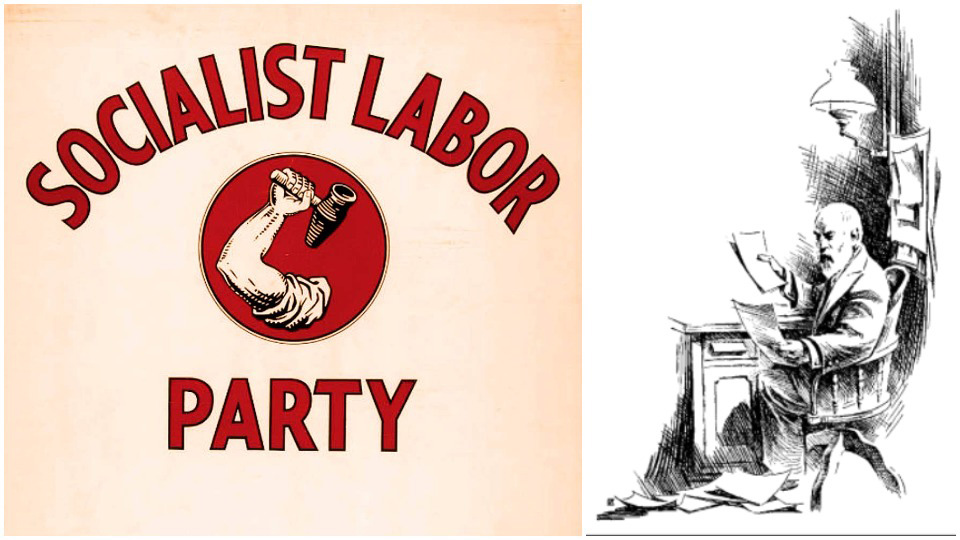
Daniel De Leon, born 165 years ago on December 14, 1852, was an American socialist newspaper editor, politician, Marxist theoretician, and trade union organizer. He is regarded as the forefather of the idea of revolutionary industrial unionism and was the leading figure in the Socialist Labor Party of America from 1890 until the time of his death.
De Leon was born in Curaçao into a Dutch Jewish family. His father was a surgeon in the Royal Netherlands Army and a colonial official. Daniel left Curaçao in 1866 shortly after his father’s death, and went to Germany for his studies. In Europe, he mastered several modern languages as well as ancient Greek and Latin. Sometime between 1872 and 1874 he emigrated to New York, found work as an instructor at a private school in Westchester, N.Y., and in 1876 entered Columbia College (now University), earning a law degree with honors in 1878.
From 1878 to 1882, he lived in Brownsville, Texas, as a practicing attorney, then returned to New York, now more interested in pursuing an academic career at his alma mater. A prize lectureship had been created in 1882. To be eligible a candidate had to be a graduate of Columbia, a member of the Academy of Political Science, and read at least one paper before the academy. The three-year appointment came with a $500 annual salary and required the lecturer to give twenty lectures a year, based on original research. De Leon devoted his lectures to Latin American diplomacy and the interventions of European powers in South American affairs. He received his first term in 1883 and his second term in 1886. In 1889 he was not kept on, perhaps because of his political activities.
De Leon supported the 1886 New York City mayoral campaign of Henry George and in 1890 joined the Socialist Labor Party (SLP), becoming the editor of its newspaper, The People. He quickly grew in stature inside the party and in 1891, 1902, and 1904 ran for the governorship of New York, winning more than 15,000 votes in 1902, his best result. At other times he ran for Secretary of State of New York and for the New York Court of Appeals.
De Leon became a Marxist in the late 1880s, and argued for the revolutionary overthrow of capitalism. He was highly critical of the trade union movement in America and described the craft-oriented American Federation of Labor as the “American Separation of Labor.” At this early stage in De Leon’s development, there was still a considerable remnant of the general unionist Knights of Labor in existence, and the SLP worked within it until being driven out.
By the early 20th Century, the SLP was declining in numbers, with first the Social Democratic Party and then the Socialist Party of America becoming the leading leftist political force in America. De Leon remained an important figure in the U.S. labor movement, and in 1904 he attended the International Socialist Congress, held in Amsterdam. Under the influence of the American Labor Union (ALU), he changed his politics around this time to put more focus on industrial unionism, and the ballot as a purely destructive weapon, in contrast to his earlier view of political organization as “sword” and industrial union as “shield.” He worked with the ALU in the founding of the Industrial Workers of the World (IWW) in 1905.
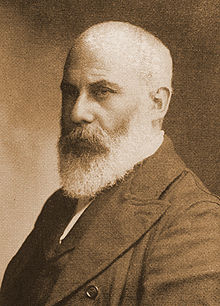
De Leon’s participation in the IWW was short-lived and acrimonious. He accused the IWW of having been taken over by what he called disparagingly “the bummery” and “slum proletarians.” De Leon disputed policy with the IWW, arguing in support of political action via the Socialist Labor Party, while other leaders, including founder Big Bill Haywood, argued instead for direct action. Haywood’s faction prevailed, resulting in a change to the Preamble which precluded “affiliation with any political party,” and De Leon was expelled.
De Leon died in New York on May 11, 1914. His Socialist Labor Party retained some influence through their newspaper The People, which for decades kept reprinting his essays and polemics. The People suspended print publication in 2008 and ended the online version in 2011.
Source: Wikipedia.



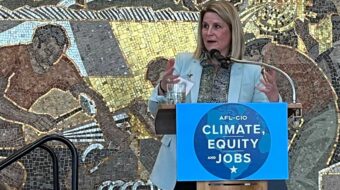
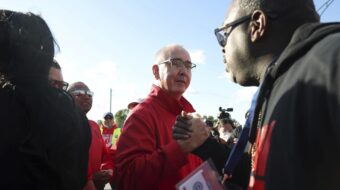
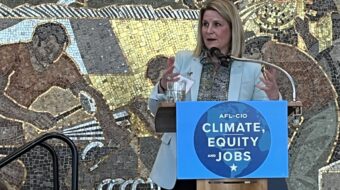






Comments